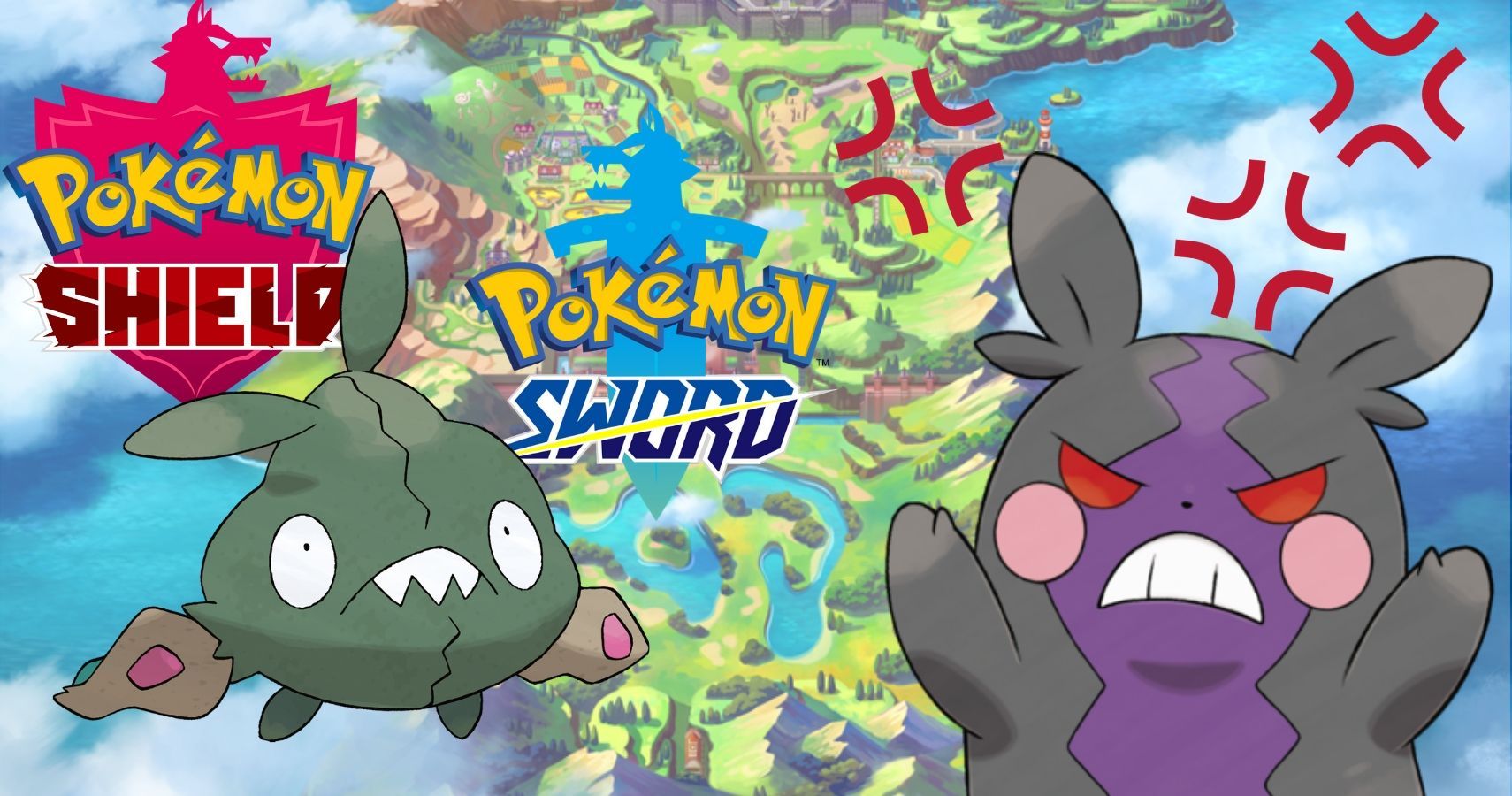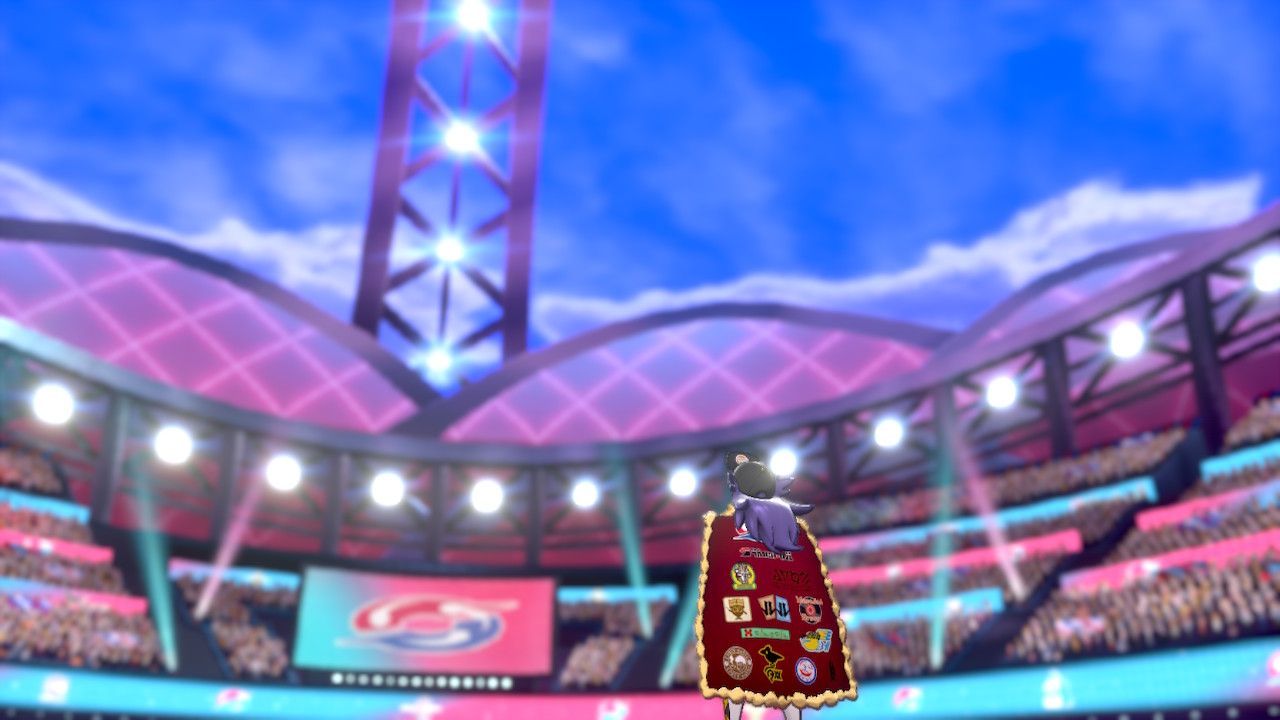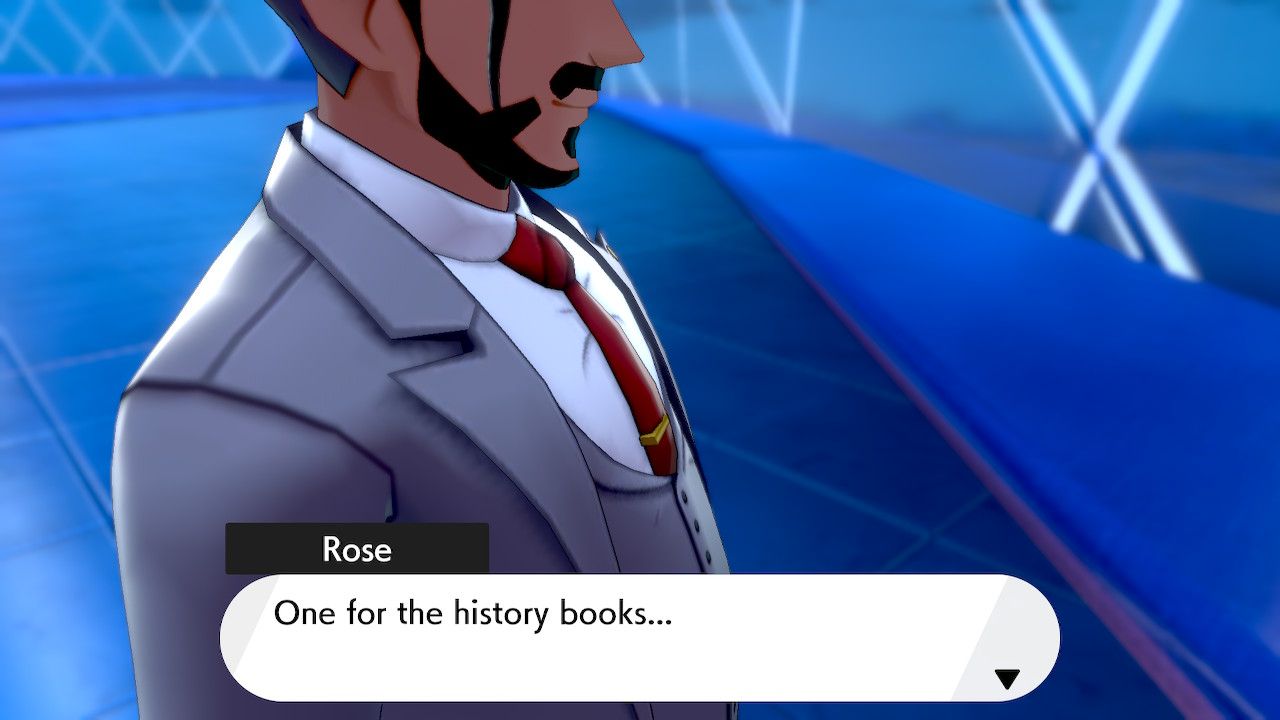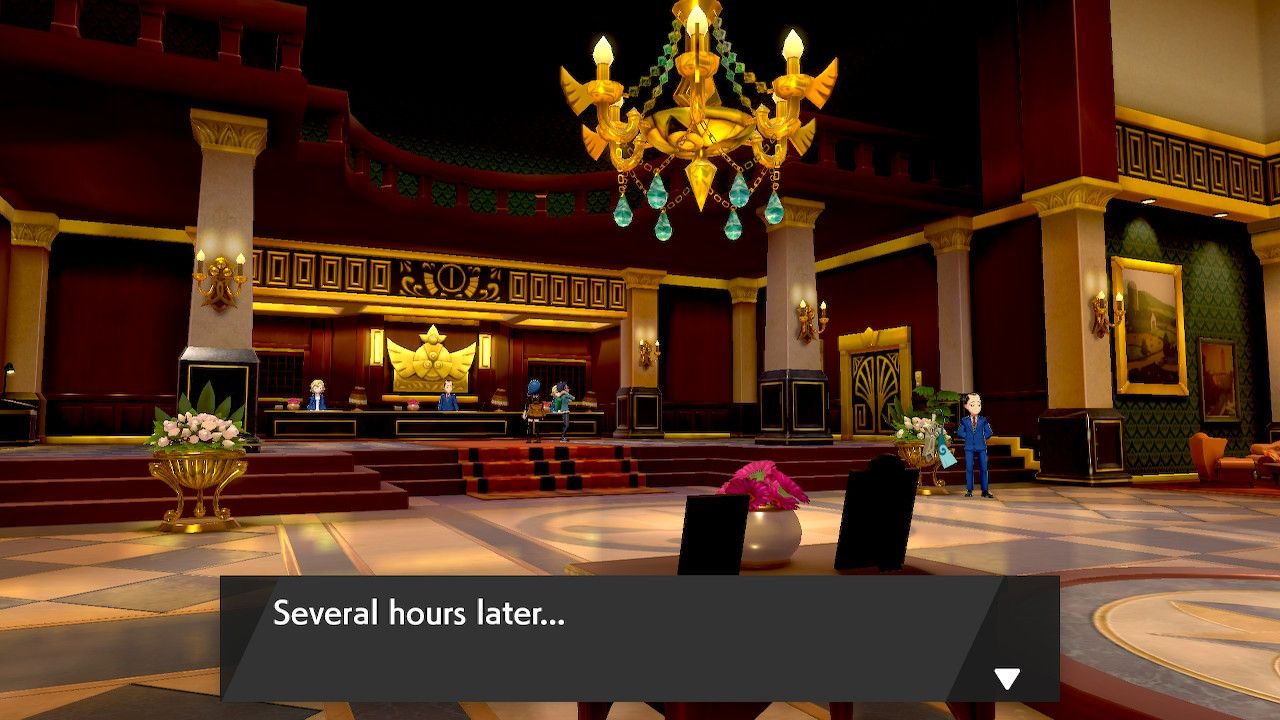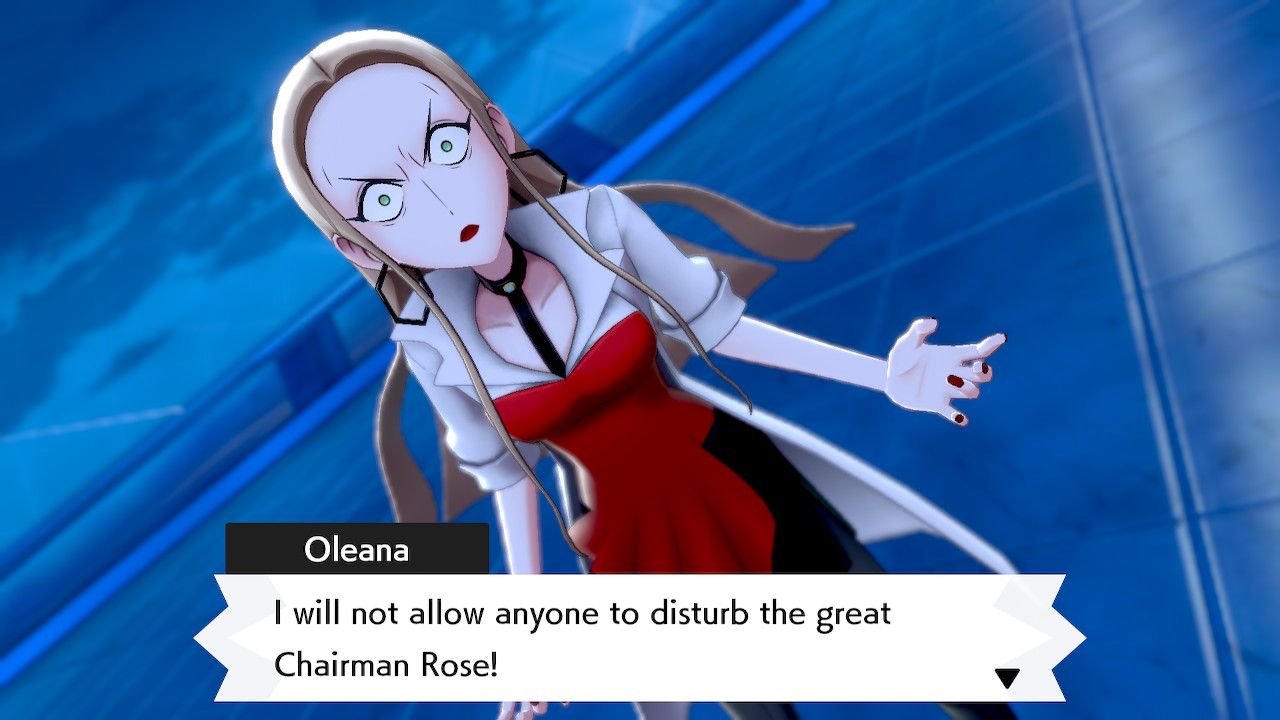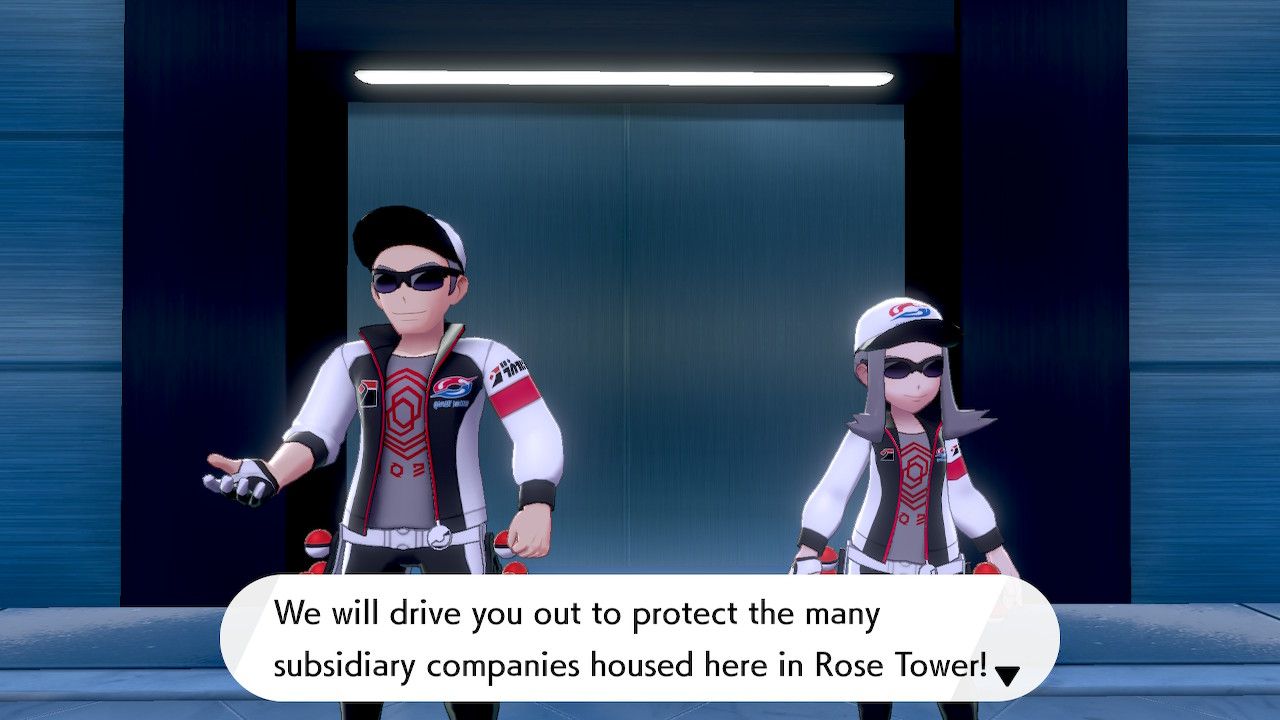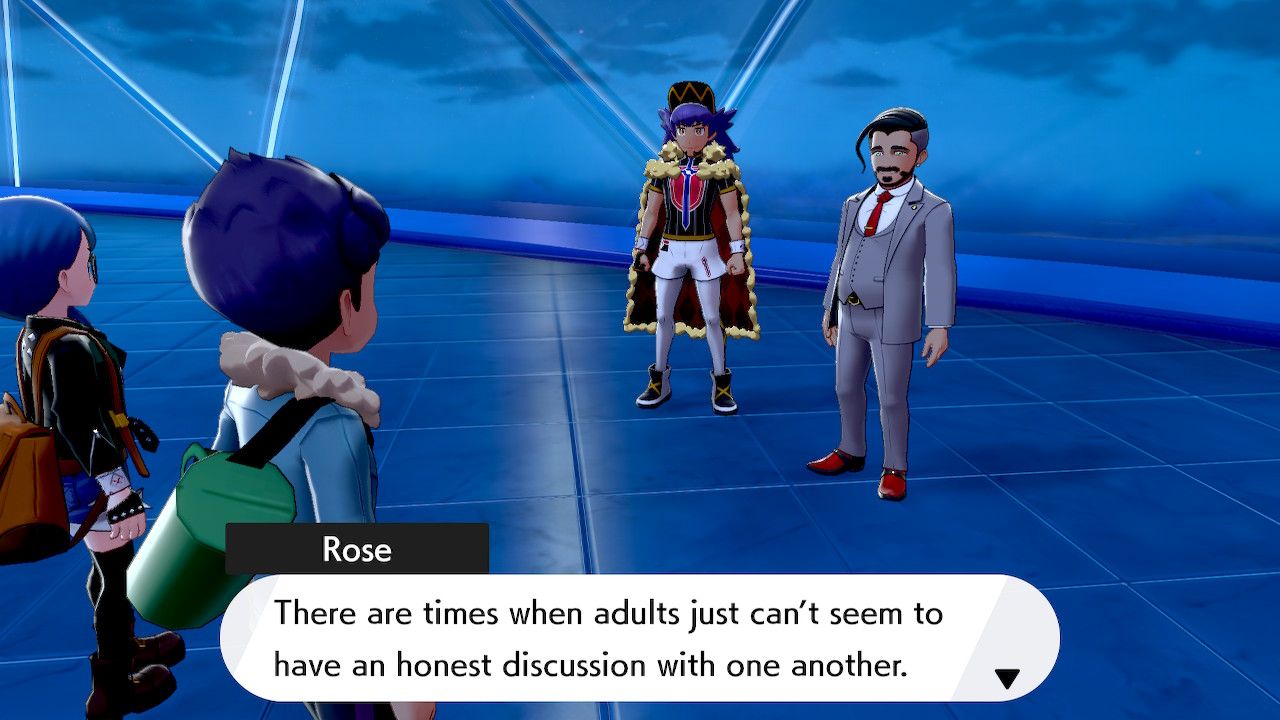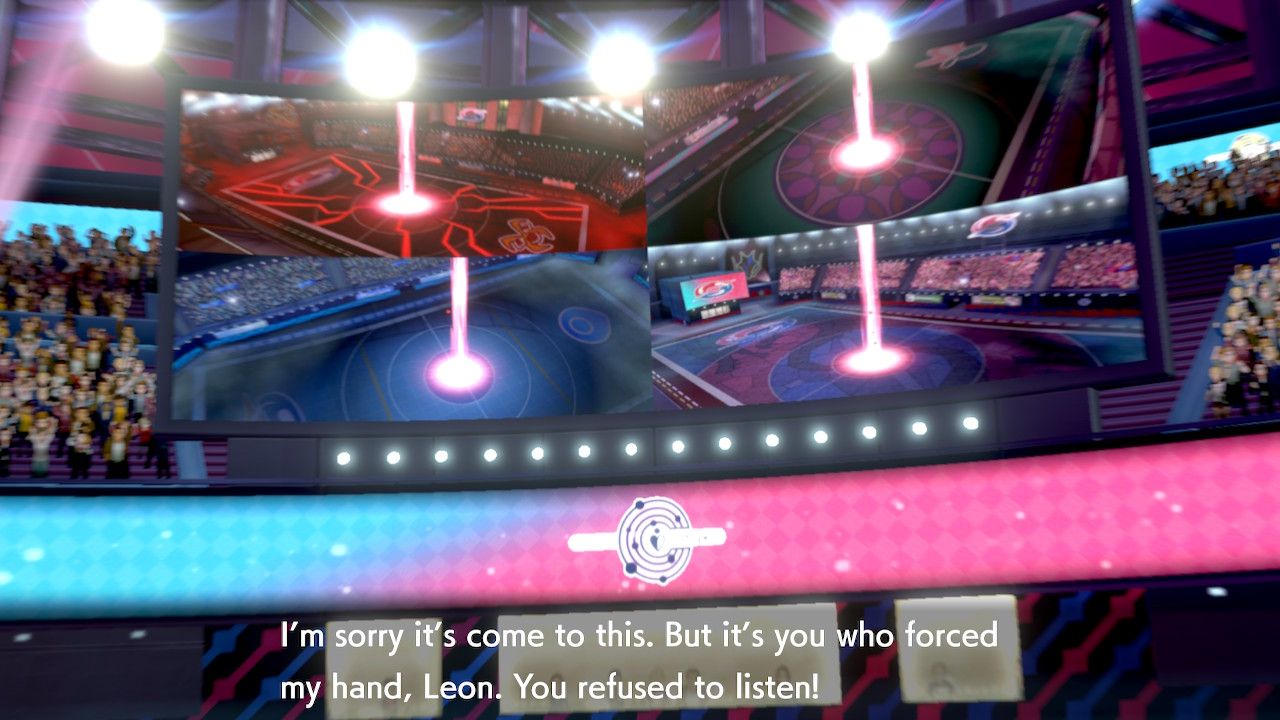Here’s the thing about constructing a plot: it’s a lot like baking. Given a good recipe, the ability to follow instructions, and the diligence to follow through on the work, it’s not hard to create a functional narrative the same way that it’s not difficult to bake an edible cookie. Obviously, it takes genuine creativity and practice to make delicious cookies or enjoyable narratives — the same way it takes true mastery to deviate from a recipe and still create something truly special. Still, the point of my analogy stands: with enough guidance, almost anyone can come up with a followable — if clumsy— plot.
The narrative designers at Game Freak are most certainly not “almost anyone,” however. They are professionals who are paid to create compelling narratives in collaboration with a game’s programmers and designers. It is more than reasonable to say that, given their resources, the expectation would be that they come up with a plot that is more than “followable.”
So, why was the plot of Pokémon Sword & Shield the narrative equivalent of a charred and inedible cookie?
A Low Bar
Let me preface this by saying that I was not expecting much from the plot of Sword & Shield— it’s a kid’s game. Sure, I was hoping that Game Freak would out-do the bombastic, mold-shattering storyline of Sun & Moon, but if I’d been presented a basic story in the traditional Pokémon formula, I would’ve been perfectly satisfied.
The bar was low, and they didn’t even come close.
Listen, you’re not even told the main antagonist’s goals until the end of the game. You’re not even given a single hint towards the existence of the Legendary Pokémon you’re supposed to defeat until literally that Pokémon’s appearance. The main antagonist doesn’t even act particularly villainous until he suddenly reveals he’s about to end the world over a very not-immediate crisis. There is no ongoing narrative tension or conflict for you to contend with throughout the story until it all very abruptly comes to a head.
And no, lovable as she may be, a tired post-grad popping in to vent about her research sometimes isn’t an adequate substitute for actually building a plot.
Not to mention how tone-deaf the plot is. Really? A CEO who’s overreacting over an energy crisis a thousand years off and takes drastic actions to solve it now is the villain? In the current, very real climate crisis that every government and corporation is maliciously ignoring, it doesn’t take a lot to recognize how irresponsible this is.
Arceus Ex Machina
The argument can be made that Game Freak intended the plot to be more subtle, breaking the Pokémon formula in its own way, and I simply didn’t enjoy it because it wasn’t what I expected. I’d be willing to accept this argument if not for the Rose Tower sequence that happens the night before the championships. Taste is subjective — the awfulness of this story section is not.
Let’s start with the premise to this chain of events: Leon promised to take you and Hop to a celebratory dinner, but is hours late, and then sends his colleague to tell you that he’s stuck in a meeting and you should go on without him. Hop immediately freaks out and insists on a search party.
I don’t know about you, but if I were a child between the ages of 10-14 who was told my Very Rich And Important older brother was stuck in a meeting with another Very Rich And Important person, I would not insist he was in danger somehow. I would simply be disappointed and proceed to have an expensive meal on his credit card before turning in for the night.
But, alright, fine, let’s take into account that Hop is not your average child between the ages of 10-14. You (and Piers the Full-Grown Adult) decide to humor his panic and go out to find Leon. You encounter Oleana, the chairman’s assistant, who won’t abide by you interrupting their meeting. She’s more confrontational than strictly necessary — but fair enough, she’s doing her job.
But then, she does the absolutely insane thing of giving the monorail key to some random employee and then challenging you to find that employee before walking off.
I just feel that Oleana, a professional, had many options of responding to this situation other than antagonizing these children and setting up a completely unnecessary goose chase.
(Also, why does the monorail, a public mode of transportation, suddenly have a corporate key?)
Listen, I get it. The moment when Team Yell, a previously antagonistic force, comes together with Piers and Marnie to help you through a crisis was meant as an important swerving point in the plot. However, the impact of it is shot dead if the circumstances are completely manufactured by a deus ex machina.
The same applies to the battle to the top of Rose Tower. Sure, everyone loves a good gauntlet sequence— especially through a tower— but it’s not exactly exciting or cathartic if you’re sitting there wondering why these employees are dignifying these trespassing children with Pokémon battles instead of politely escorting them off company premises.
And still, I would have found all this forgivable if Leon had been in some actual danger at the top of the tower. But no, there’s a long cutscene where Rose finally reveals his motivations without actually explaining his urgency at all (much too late in the plot) before Leon dismisses him and walks off with you and Hop in tow.
This entire sequence reads like a ten-year-old on Livejournal who shoves a bunch of cool scenes into their fanfiction without bothering to actually incorporate them into the plot in a meaningful or even logical way. And that’s not a standard that an internationally acclaimed game developer should aspire to.
Despite all that, I don’t regret getting the game. I adore the new Pokémon, the new characters, and new design choices. It was a superb Pokémon experience — but unfortunately, the gameplay experience was all that it delivered on. I suspect that the narrative designers weren’t actually given the time or resources to create a working plot in collaboration with the programmers so much as told to come up with text and premises for segments that had already been designed and programmed, piece by piece. Even if that wasn’t the case, it’s obvious that the writing fell hard to the wayside when it came to priorities.
Hopefully, Game Freak can do better next time around, perhaps with a more forgiving release schedule. But given the commercial success of Sword & Shield despite a massive movement to boycott it as well as a poorly made story, we may be seeing the beginning of a decline in quality.

